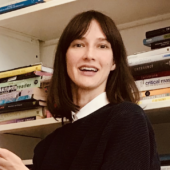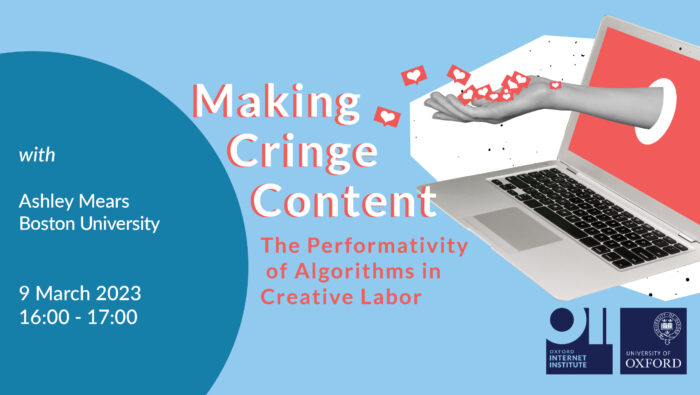
Prof Ashley Mears
Professor of Sociology, Boston University
Ashley Mears is a professor and the author of two books, Pricing Beauty: The Making of a Fashion Model (California, 2011), and Very Important People (Princeton, 2020).

Algorithms are now so intertwined with markets, workplaces, and media that scholars describe them as part of our social systems of meaning-making. This article shows how algorithms shape the practical work of making culture. I draw from a case of content creators who make entertainment videos engineered to go viral on social media, videos they dismiss as “cringe.” To explain the puzzle of creators contradicting their own artistic sensibilities, I combine social studies of technology and labor theory to develop a model of algorithmically-driven creative labor. Drawing from 16 months of ethnography and interviews with 60 viral creators, I show how creators interact with algorithms which discipline them into making attention-grabbing content. I trace workers’ interactions with data metrics in five steps. First, creators learn to subjugate their own tastes to data; second, they adapt to algorithm changes; third, they simplify stories into visual, often stereotypically sexualized and racialized imagery; fourth, they copy what works; fifth, they experience thrills of the game of scoring metrics. Ultimately, successful creators fuse their standards of quality with quantitative metrics they believe algorithms prioritize. By documenting this labor process from alienation, adaptation, simplification, replication, and gamification, I arrive at a theory of algorithms as performative in cultural production, which yields subpar cultural outcomes in the form of cringe content.

Professor of Sociology, Boston University
Ashley Mears is a professor and the author of two books, Pricing Beauty: The Making of a Fashion Model (California, 2011), and Very Important People (Princeton, 2020).